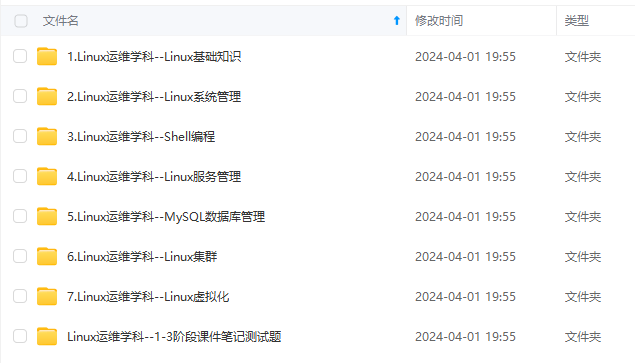k8s集群[kubeadm安装]
apt-get install -y curl apt-transport-httpscurl -fsSL https://download.docker.com/linux/ubuntu/gpg | sudo apt-key add -echo &amp
·
参考:
http://dockone.io/article/950
https://blog.csdn.net/chen798213337/article/details/78501042
http://blog.51cto.com/devingeng/2096495
http://www.cnblogs.com/ericnie/p/7749588.html
1,k8s组件安装
- 环境依赖: etcd,docker,
- master节点: kube-apiserver,kube-controller-manager,kube-scheduler
- minion节点: kubelet,kube-proxy
最终的服务启动情况 如下:
阿里docker镜像仓库
阿里k8s镜像加速:https://blog.csdn.net/eyeofeagle/article/details/85015303
ubuntu安装k8s
apt-get install -y curl apt-transport-https
curl -fsSL https://download.docker.com/linux/ubuntu/gpg | sudo apt-key add -
echo "deb [arch=amd64] https://mirrors.ustc.edu.cn/kubernetes/apt kubernetes-$(lsb_release -cs) main" >> /etc/apt/sources.list.d/kubernetes.list
#curl https://mirrors.aliyun.com/kubernetes/apt/doc/apt-key.gpg
#deb https://mirrors.aliyun.com/kubernetes/apt/ kubernetes-xenial main
apt-get update && apt-get install -y kubelet kubeadm kubectl kubernetes-cni --allow-unauthenticated
centos7 安装k8s
#1, 系统环境: 网络. 缓存, 防火墙配置
swapoff -a
cat > /etc/sysctl.d/k8s.conf <<EOF
net.bridge.bridge-nf-call-ip6tables = 1
net.bridge.bridge-nf-call-iptables = 1
EOF
modprobe br_netfilter
ls /proc/sys/net/bridge
sudo sysctl -p /etc/sysctl.d/k8s.conf
sysctl -p /etc/sysctl.d/k8s.conf
service firewalld stop
systemctl disable firewalld
setenforce 0
sed -i s/SELINUX=enforcing/SELINUX=disabled/g /etc/selinux/config
# 2, 获取k8s组件资源
cat > /etc/yum.repos.d/kubernetes.repo << EOF
[kubernetes]
name=Kubernetes
baseurl=https://mirrors.aliyun.com/kubernetes/yum/repos/kubernetes-el7-x86_64
enabled=1
gpgcheck=0
EOF
# 3, 启动组件
yum install -y etcd kubernetes
systemctl enable kubelet && systemctl start kubelet
#######使用kubectl 启动服务遇到的问题
[root@cent7-1 ~]# kubectl get pods
NAME READY STATUS RESTARTS AGE
mysql-f61wb 0/1 ContainerCreating 0 54m
tomcat-web-kc2rk 0/1 ContainerCreating 0 37m
[root@cent7-1 ~]# kubectl describe pod mysql
Name: mysql-f61wb
Labels: app=mysql
Status: Pending
Events:
FirstSeen LastSeen Count From SubObjectPath Type Reason Message
--------- -------- ----- ---- ------------- -------- ------ -------
55m 55m 1 {default-scheduler } Normal Scheduled Successfully assigned mysql-f61wb to 127.0.0.1
55m 3m 15 {kubelet 127.0.0.1} Warning FailedSync Error syncing pod, skipping: failed to "StartContainer" for "POD" with ErrImagePull: "image pull failed for registry.access.redhat.com/rhel7/pod-infrastructure:latest, this may be because there are no credentials on this request. details: (open /etc/docker/certs.d/registry.access.redhat.com/redhat-ca.crt: no such file or directory)"
55m 5s 241 {kubelet 127.0.0.1} Warning FailedSync Error syncing pod, skipping: failed to "StartContainer" for "POD" with ImagePullBackOff: "Back-off pulling image \"registry.access.redhat.com/rhel7/pod-infrastructure:latest\""
原因: /etc/rhsm/ca/redhat-uep.pem文件不存在
[root@cent7-1 ~]# docker pull registry.access.redhat.com/rhel7/pod-infrastructure:latest
Trying to pull repository registry.access.redhat.com/rhel7/pod-infrastructure ...
open /etc/docker/certs.d/registry.access.redhat.com/redhat-ca.crt: no such file or directory
[root@cent7-1 ~]# ll /etc/docker/certs.d/registry.access.redhat.com/redhat-ca.crt
lrwxrwxrwx. 1 root root 27 12月 22 21:12 /etc/docker/certs.d/registry.access.redhat.com/redhat-ca.crt -> /etc/rhsm/ca/redhat-uep.pem
解决:
# 1,生成该pem文件
wget http://mirror.centos.org/centos/7/os/x86_64/Packages/python-rhsm-certificates-1.19.10-1.el7_4.x86_64.rpm
rpm2cpio python-rhsm-certificates-1.19.10-1.el7_4.x86_64.rpm | cpio -iv --to-stdout ./etc/rhsm/ca/redhat-uep.pem | tee /etc/rhsm/ca/redhat-uep.pem
# 2, 手动拉取镜像
docker pull registry.access.redhat.com/rhel7/pod-infrastructure:latest
2, 拉取k8s 所需的docker镜像
使用镜像加速
echo "OPTIONS='--selinux-enabled --log-driver=journald --registry-mirror=http://yywkvob3.mirror.aliyuncs.com' " >> /etc/sysconfig/docker
#或者 OPTIONS='--selinux-enabled=false --insecure-registry gcr.io'
查看安装的k8s组件版本:
root@wang-GA-MA770T-UD3P:~/sh-docker# apt list |grep kube
WARNING: apt does not have a stable CLI interface. Use with caution in scripts.
cri-tools/kubernetes-xenial,now 1.12.0-00 amd64 [installed,automatic]
docker-engine/kubernetes-xenial 1.11.2-0~xenial amd64
kubeadm/kubernetes-xenial,now 1.13.1-00 amd64 [installed]
kubectl/kubernetes-xenial,now 1.13.1-00 amd64 [installed]
kubelet/kubernetes-xenial,now 1.13.1-00 amd64 [installed]
kubernetes-cni/kubernetes-xenial,now 0.6.0-00 amd64 [installed]
rkt/kubernetes-xenial 1.29.0-1 amd64
使用kubeadm安装kubenete所有服务
初始化 && 拉取镜像文件
root@wang-GA-MA770T-UD3P:~/sh-docker# kubeadm init --kubernetes-version=v1.10.0 --pod-network-cidr=10.244.0.0/16
this version of kubeadm only supports deploying clusters with the control plane version >= 1.12.0. Current version: v1.10.0
root@wang-GA-MA770T-UD3P:~/sh-docker# kubeadm init --kubernetes-version=v1.13.1
[init] Using Kubernetes version: v1.13.1
[preflight] Running pre-flight checks
[WARNING SystemVerification]: this Docker version is not on the list of validated versions: 18.09.0. Latest validated version: 18.06
[preflight] Pulling images required for setting up a Kubernetes cluster
[preflight] This might take a minute or two, depending on the speed of your internet connection
[preflight] You can also perform this action in beforehand using 'kubeadm config images pull'
################################################
#root@wang-GA-MA770T-UD3P:/home/wang# kubeadm config images pull
#[config/images] Pulled k8s.gcr.io/kube-apiserver:v1.13.1
#[config/images] Pulled k8s.gcr.io/kube-controller-manager:v1.13.1
#[config/images] Pulled k8s.gcr.io/kube-scheduler:v1.13.1
#[config/images] Pulled k8s.gcr.io/kube-proxy:v1.13.1
#[config/images] Pulled k8s.gcr.io/pause:3.1
#[config/images] Pulled k8s.gcr.io/etcd:3.2.24
#[config/images] Pulled k8s.gcr.io/coredns:1.2.6
################################################
[kubelet-start] Writing kubelet environment file with flags to file "/var/lib/kubelet/kubeadm-flags.env"
[kubelet-start] Writing kubelet configuration to file "/var/lib/kubelet/config.yaml"
[kubelet-start] Activating the kubelet service
[certs] Using certificateDir folder "/etc/kubernetes/pki"
[certs] Generating "ca" certificate and key
[certs] Generating "apiserver-kubelet-client" certificate and key
[certs] Generating "apiserver" certificate and key
[certs] apiserver serving cert is signed for DNS names [wang-ga-ma770t-ud3p kubernetes kubernetes.default kubernetes.default.svc kubernetes.default.svc.cluster.local] and IPs [10.96.0.1 192.168.1.12]
[certs] Generating "front-proxy-ca" certificate and key
[certs] Generating "front-proxy-client" certificate and key
[certs] Generating "etcd/ca" certificate and key
[certs] Generating "etcd/peer" certificate and key
[certs] etcd/peer serving cert is signed for DNS names [wang-ga-ma770t-ud3p localhost] and IPs [192.168.1.12 127.0.0.1 ::1]
[certs] Generating "etcd/healthcheck-client" certificate and key
[certs] Generating "etcd/server" certificate and key
[certs] etcd/server serving cert is signed for DNS names [wang-ga-ma770t-ud3p localhost] and IPs [192.168.1.12 127.0.0.1 ::1]
[certs] Generating "apiserver-etcd-client" certificate and key
[certs] Generating "sa" key and public key
[kubeconfig] Using kubeconfig folder "/etc/kubernetes"
[kubeconfig] Writing "admin.conf" kubeconfig file
[kubeconfig] Writing "kubelet.conf" kubeconfig file
[kubeconfig] Writing "controller-manager.conf" kubeconfig file
[kubeconfig] Writing "scheduler.conf" kubeconfig file
[control-plane] Using manifest folder "/etc/kubernetes/manifests"
[control-plane] Creating static Pod manifest for "kube-apiserver"
[control-plane] Creating static Pod manifest for "kube-controller-manager"
[control-plane] Creating static Pod manifest for "kube-scheduler"
[etcd] Creating static Pod manifest for local etcd in "/etc/kubernetes/manifests"
[wait-control-plane] Waiting for the kubelet to boot up the control plane as static Pods from directory "/etc/kubernetes/manifests". This can take up to 4m0s
[apiclient] All control plane components are healthy after 36.005486 seconds
[uploadconfig] storing the configuration used in ConfigMap "kubeadm-config" in the "kube-system" Namespace
[kubelet] Creating a ConfigMap "kubelet-config-1.13" in namespace kube-system with the configuration for the kubelets in the cluster
[patchnode] Uploading the CRI Socket information "/var/run/dockershim.sock" to the Node API object "wang-ga-ma770t-ud3p" as an annotation
[mark-control-plane] Marking the node wang-ga-ma770t-ud3p as control-plane by adding the label "node-role.kubernetes.io/master=''"
[mark-control-plane] Marking the node wang-ga-ma770t-ud3p as control-plane by adding the taints [node-role.kubernetes.io/master:NoSchedule]
[bootstrap-token] Using token: d6q5e5.j1qzgg38ct6z2vo9
[bootstrap-token] Configuring bootstrap tokens, cluster-info ConfigMap, RBAC Roles
[bootstraptoken] configured RBAC rules to allow Node Bootstrap tokens to post CSRs in order for nodes to get long term certificate credentials
[bootstraptoken] configured RBAC rules to allow the csrapprover controller automatically approve CSRs from a Node Bootstrap Token
[bootstraptoken] configured RBAC rules to allow certificate rotation for all node client certificates in the cluster
[bootstraptoken] creating the "cluster-info" ConfigMap in the "kube-public" namespace
[addons] Applied essential addon: CoreDNS
[addons] Applied essential addon: kube-proxy
Your Kubernetes master has initialized successfully!
To start using your cluster, you need to run the following as a regular user:
mkdir -p $HOME/.kube
sudo cp -i /etc/kubernetes/admin.conf $HOME/.kube/config
sudo chown $(id -u):$(id -g) $HOME/.kube/config
You should now deploy a pod network to the cluster.
Run "kubectl apply -f [podnetwork].yaml" with one of the options listed at:
https://kubernetes.io/docs/concepts/cluster-administration/addons/
You can now join any number of machines by running the following on each node
as root:
kubeadm join 192.168.1.12:6443 --token d6q5e5.j1qzgg38ct6z2vo9 --discovery-token-ca-cert-hash sha256:d9d9880d1855f3ec0acf96f74161b11214f742c74c9ea6f7042a4f378726f0df
root@wang-GA-MA770T-UD3P:~/sh-docker# echo "export KUBECONFIG=/etc/kubernetes/admin.conf" >> ~/.bash_profile
#=================network flannel install
mkdir -p /etc/cni/net.d/
cat <<EOF> /etc/cni/net.d/10-flannel.conf
{
“name”: “cbr0”,
“type”: “flannel”,
“delegate”: {
“isDefaultGateway”: true
}
}
EOF
mkdir /usr/share/oci-umount/oci-umount.d -p
mkdir /run/flannel/
cat <<EOF> /run/flannel/subnet.env
FLANNEL_NETWORK=10.244.0.0/16
FLANNEL_SUBNET=10.244.1.0/24
FLANNEL_MTU=1450
FLANNEL_IPMASQ=true
EOF
kubectl apply -f https://raw.githubusercontent.com/coreos/flannel/v0.9.1/Documentation/kube-flannel.yml
### clusterrole.rbac.authorization.k8s.io/flannel created
### clusterrolebinding.rbac.authorization.k8s.io/flannel created
### serviceaccount/flannel created
### configmap/kube-flannel-cfg created
### daemonset.extensions/kube-flannel-ds created

3, 保存镜像到阿里云的镜像仓库
为了管理方便,把拉取到的镜像推送到阿里云私有仓库存起来
################1
images=(
#=========== master =================
k8s.gcr.io/kube-apiserver:v1.13.1
k8s.gcr.io/kube-apiserver-amd64:v1.10.0
k8s.gcr.io/kube-controller-manager:v1.13.1
k8s.gcr.io/kube-controller-manager-amd64:v1.10.0
k8s.gcr.io/kube-scheduler:v1.13.1
k8s.gcr.io/kube-scheduler-amd64:v1.10.0
#=========== node =================
k8s.gcr.io/kube-proxy:v1.13.1
k8s.gcr.io/kube-proxy-amd64:v1.10.0
k8s.gcr.io/pause-amd64:3.1
k8s.gcr.io/pause:3.1
#=========== env soft =================
k8s.gcr.io/etcd:3.2.24
k8s.gcr.io/etcd-amd64:3.1.12
k8s.gcr.io/coredns:1.2.6
k8s.gcr.io/kubernetes-dashboard-amd64:v1.8.3
k8s.gcr.io/k8s-dns-dnsmasq-nanny-amd64:1.14.8
k8s.gcr.io/k8s-dns-sidecar-amd64:1.14.8
k8s.gcr.io/k8s-dns-kube-dns-amd64:1.14.8
)
for i in ${images[*]}
do
my_tag=`echo $i |cut -d '/' -f2`
echo "$i ==== > registry.cn-beijing.aliyuncs.com/kube_eyeofeagle/$my_tag"
docker tag $i registry.cn-beijing.aliyuncs.com/kube_eyeofeagle/$my_tag
done
################2
images2=(
#=========== master =================
gcr.io/google_containers/kube-apiserver-amd64:v1.8.7
gcr.io/google_containers/kube-scheduler-amd64:v1.8.7
#=========== node =================
gcr.io/google_containers/pause-amd64:3.0
#=========== env soft =================
gcr.io/google_containers/etcd-amd64:3.0.17
gcr.io/google_containers/kubernetes-dashboard-amd64:v1.8.1
gcr.io/google_containers/k8s-dns-dnsmasq-nanny-amd64:1.14.5
gcr.io/google_containers/k8s-dns-sidecar-amd64:1.14.5
gcr.io/google_containers/k8s-dns-kube-dns-amd64:1.14.5
)
for i in ${images2[*]}
do
my_tag=`echo $i |cut -d '/' -f3`
echo "$i ==== > registry.cn-beijing.aliyuncs.com/kube_eyeofeagle/$my_tag"
docker tag $i registry.cn-beijing.aliyuncs.com/kube_eyeofeagle/$my_tag
done
################3
root@wang-GA-MA770T-UD3P:/home/wang/txt# docker images |grep registry.cn-beijing.aliyuncs.com/kube_eyeofeagle/ |awk '{print $1":"$2}'
registry.cn-beijing.aliyuncs.com/kube_eyeofeagle/kube-proxy:v1.13.1
registry.cn-beijing.aliyuncs.com/kube_eyeofeagle/kube-scheduler:v1.13.1
registry.cn-beijing.aliyuncs.com/kube_eyeofeagle/kube-apiserver:v1.13.1
registry.cn-beijing.aliyuncs.com/kube_eyeofeagle/kube-controller-manager:v1.13.1
root@wang-GA-MA770T-UD3P:/home/wang/txt# docker images |grep registry.cn-beijing.aliyuncs.com/kube_eyeofeagle/ |awk '{print $1":"$2}'|xargs -n 1 docker push
The push refers to repository [registry.cn-beijing.aliyuncs.com/kube_eyeofeagle/kube-proxy]
f9cdaf1489a0: Pushed
e5a609b37e16: Pushed
5fe6d025ca50: Pushed
############4, 测试 镜像拉取
images=(
#=========== master =================
registry.cn-beijing.aliyuncs.com/kube_eyeofeagle/kube-apiserver:v1.13.1
registry.cn-beijing.aliyuncs.com/kube_eyeofeagle/kube-apiserver-amd64:v1.10.0
registry.cn-beijing.aliyuncs.com/kube_eyeofeagle/kube-controller-manager:v1.13.1
registry.cn-beijing.aliyuncs.com/kube_eyeofeagle/kube-controller-manager-amd64:v1.10.0
registry.cn-beijing.aliyuncs.com/kube_eyeofeagle/kube-scheduler:v1.13.1
registry.cn-beijing.aliyuncs.com/kube_eyeofeagle/kube-scheduler-amd64:v1.10.0
#=========== node =================
registry.cn-beijing.aliyuncs.com/kube_eyeofeagle/kube-proxy:v1.13.1
registry.cn-beijing.aliyuncs.com/kube_eyeofeagle/kube-proxy-amd64:v1.10.0
registry.cn-beijing.aliyuncs.com/kube_eyeofeagle/pause-amd64:3.1
registry.cn-beijing.aliyuncs.com/kube_eyeofeagle/pause:3.1
#=========== env soft =================
registry.cn-beijing.aliyuncs.com/kube_eyeofeagle/etcd:3.2.24
registry.cn-beijing.aliyuncs.com/kube_eyeofeagle/etcd-amd64:3.1.12
registry.cn-beijing.aliyuncs.com/kube_eyeofeagle/coredns:1.2.6
registry.cn-beijing.aliyuncs.com/kube_eyeofeagle/kubernetes-dashboard-amd64:v1.8.3
registry.cn-beijing.aliyuncs.com/kube_eyeofeagle/k8s-dns-dnsmasq-nanny-amd64:1.14.8
registry.cn-beijing.aliyuncs.com/kube_eyeofeagle/k8s-dns-sidecar-amd64:1.14.8
registry.cn-beijing.aliyuncs.com/kube_eyeofeagle/k8s-dns-kube-dns-amd64:1.14.8
)
for i in ${images[*]}
do
docker pull $i
my_tag=`echo $i |cut -d '/' -f3`
echo "$i ==== >k8s.gcr.io/$my_tag"
docker tag $i k8s.gcr.io/$my_tag
docker rmi $i
done
更多推荐
 已为社区贡献11条内容
已为社区贡献11条内容









所有评论(0)